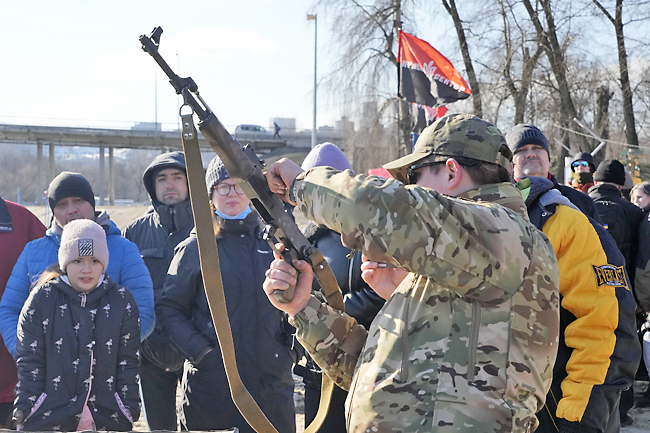KYIV, UKRAINE (AP) – German Chancellor Olaf Scholz visited Ukraine yesterday, part of a flurry of Western diplomacy aimed at heading off a feared Russian invasion that some warn could be just days away.
Scholz plans to continue on to Moscow, where he will try to persuade Russian President Vladimir Putin to back down.
United States (US) officials have warned that Russia could attack this week. Moscow denies it has any such plans but has massed well over 130,000 troops near Ukraine and, in the US view, has built up enough firepower to launch an attack on short notice.
With concerns rising that war could be imminent, some airlines cancelled flights to the Ukrainian capital and troops there unloaded fresh shipments of weapons from NATO members on Sunday. The US, Britain and other European nations told their citizens to leave the country and Washington was also pulling most of its staff from the embassy in Kyiv.
Ukraine’s air traffic safety agency Ukraerorukh issued a statement declaring the airspace over the Black Sea to be a “zone of potential danger” because of Russian naval drills and recommended that planes avoid flying over the sea on February 14-19.
The US and its NATO allies have repeatedly warned that Russia will pay a high price for any invasion – but they have sometimes struggled to present a united front. Scholz’s government, in particular, has been criticised for refusing to supply lethal weapons to Ukraine or to spell out which sanctions it would support against Russia, raising questions about Berlin’s resolve to stand up to Moscow.
The chancellor’s visits this week will thus be closely watched for a signs of deviating from the message delivered by Washington and other NATO allies.





